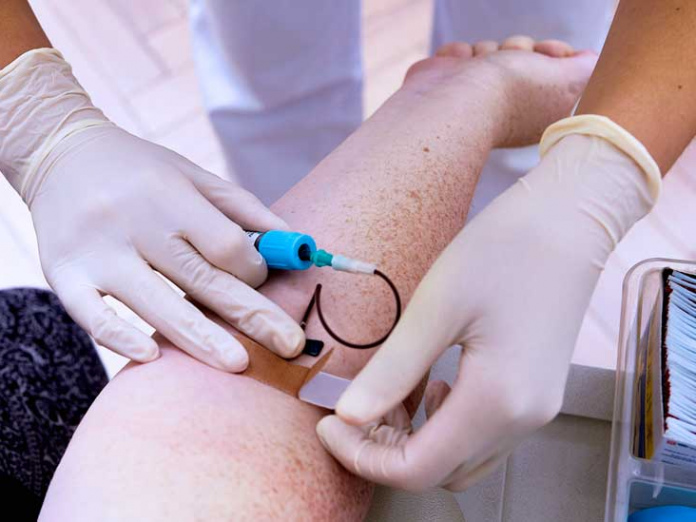So, who loves needles and the sight of blood? Not many of us, I assume. Yet in fields such as medicine and biohacking, they are an extremely necessary part of diagnostics and treatment plans. So, if you can’t stand the sight of them, just try to think about the benefits of the action you are taking, rather than the pain of that “shot in the arm”.
This article focuses on the importance of getting a blood test. And I don’t mean once every 5 years, rather the frequency with which you do these tests should be closer to 1-4x per year (depending on how motivated you are to utilize data and also how accessible / convenient the testing is for you). The blood test should be thought of as one of the cornerstones of biohacking. In fact, without it, much of what we look to tweak today with our biohacks would be completely immeasurable and thus the legitimacy of this field would be extremely unsubstantiated. The amount of precise, measurable, actionable data gleaned from a good blood test is priceless in the hands of a proactive biohacker.
One thing most people don’t seem to realize is that the reason blood tests are almost always fully covered by insurance is because we need them routinely, not just once we actually get sick and it’s too late to do anything about it. If you have insurance and you are not taking advantage of bi-annual blood tests, please ????
Now you’re probably thinking “ok, got it, blood tests, important…yep…” but let’s discuss what you should actually be measuring on these blood tests. Well, to get yourself started, take a look at the list below. This is what you should be asking your doctor for at a minimum. One more point I’ll make before we get into what you should be measuring is, not all doctors are equal in their desire to help or cooperate with their patients. Some doctors may even denounce having a blood test more than once a year, or tell you that some of the things you want to measure are not recommended. Please ignore this completely and ask until they support you, or, find a new doctor (befriending a flexible doctor who understands what your goals are is one of the key necessities for successful biohacking). Don’t let one person’s word come between you, your data, and your long-term health, especially if you are someone with risk of chronic health issues in the future. An early blood test could literally add years to your life if it allows you to spot a problem and make a change. And when you get your results back, don’t just let the doctor walk in and say “yep, everything looks fine”. Make sure you request the printed report, and you go through it line by line to compare your results with the reference ranges provided. If something feels “off”, talk to the doctor about it. One classic example is male testosterone testing. Technically, and legally, the doctor could tell you that you are “fine” if you return a total testosterone level of 250 or above, the upper normal physiological reference range being 800-900. However, if you got a 250 and you knew the upper band of the reference range was 900, and that low testosterone over a long period of time was directly linked with an increase in total mortality by any cause, such as heart disease, Alzheimers, etc, would you be OK with that? The purpose of biohacking is physiological optimization, so with that in mind, anyone returning a 250 on a male hormone test should then ask for a course of treatment to raise that number to a more “satisfactory” level.
What to measure on blood tests (bare minimum):
- Blood panel (Complete blood count & blood protein)
- Chemistry (basic metabolic) panel
- Thyroid panel
- Nutrient panel to measure key vitamin levels (B, D, Magnesium, Iodine, Calcium, etc)
- Enzyme markers (CPK isoenzymes, heart & liver enzymes)
- Lipid panel
- Hormone panel – for males as well as females this must include free and total testosterone, luteinizing hormone, SHBG (sex hormone binding globulin), estrogen, FSH (follicle stimulating hormone), progesterone, cortisol, DHEA,, GH (Growth Hormone), IGF-1, parathyroid hormone, pregnenelone)
- Blood glucose
- Hemoglobin A1C
- Brain natriuretic peptide (BNP)
- Ferritin
- Fibrinogen
- Homocysteine
- C-reactive protein
- PSA (for males only)
All of these blood markers are quite normal to request, and therefore should be covered by most insurance plans.
As a small homework assignment, because knowledge is power, i would like everyone reading this article to go to Google when you have some free time, and input “purpose of _______ measurement in a blood test”, then add in every keyword from the list above and read at least one article on why we measure these things and what the readings tell us.
In a future article I’ll go deeper into some of the more “involved” blood tests, for those of you out there who want to get a bit more “specific”.
Until next time biohackers…










